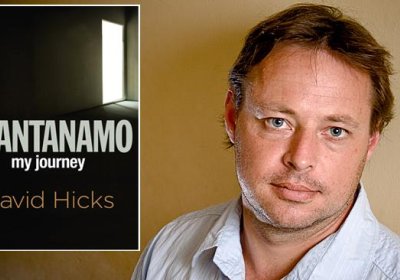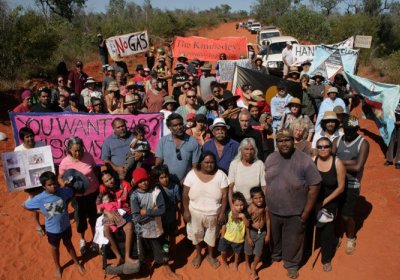Salil Shetty, Amnesty International’s secretary-general, has slammed the Northern Territory intervention, saying that it is making the problems facing Aboriginal Australians worse, AAP reported on October 7.
He said the government’s “top-down externally driven” efforts to close the gap on Aboriginal socio-economic disadvantage were instead having the opposite effect”. Amnesty was appalled that current policies had in effect caused “forced evictions from their traditional homelands”.
Stefan Skibicki
If Julia Gillard is deposed as Australia’s prime minister, she has only herself to blame.
Gillard’s ALP is barely distinguishable from the Coalition, varying only by a nuance here or there. More than any other reason, this explains her bottomless unpopularity.
The ALP has continually abandoned its supposed constituency, the working class, in favour of the wealthy, who contribute more and more to the ALP’s coffers.
It’s true Gillard didn’t start the rightward shift of the ALP, but she has taken it so far that Abbott can now attack Gillard from the “left”.
Australia’s media, already saturated with gas and mining company propaganda, are about to be bombarded with more “good news” about coal seam gas (CSG). A campaign called “We want CSG” was launched on September 4. It includes television, radio, newspaper and online advertisements. It is backed by some of Australia’s largest energy companies, including AGL, Santos, and Origin Energy, under the banner of the Australian Petroleum Production and Exploration Association (APPEA).
The legal team of former Guantanamo Bay prisoner David Hicks submitted a communication to the United Nations Human Rights Committee on August 23.
It argues the Australian government treatment of Hicks has violated the International Covenant on Civil and Political Rights, to which Australia is a party.
A convoy of 30 trucks and cars loaded with drilling equipment and workers from energy company Woodside set out from Broome in northern Western Australia at 2.30am on August 26.
The people of Koonawarra, Berkeley, Warrawong and Port Kembla are being neglected while redevelopments such as the Blue Mile (a foreshore development around Wollongong harbour) and $14 million Wollongong mall makeover soak up limited funds, say Community Voice Ward 3 candidates for council elections Adrianne Talbot-Thomson and Ken Davis.
“Council’s city-centric approach needs to be replaced with a more geographically equitable distribution of resources, services and projects,” said Talbot-Thomson.
About 40% of new Disability Support Pension (DSP) recipients may be ruled ineligible as the federal Labor government updates the tables for the assessment of work-related impairment for DSP.
Community services minister Jenny Macklin said on July 30 that the revised impairment tables will be implemented from January 1 next year and will apply to new recipients only. This is the first review of the DSP impairment tables since 1993.
An enthusiastic group of community campaigners was chosen to run for the September 3 council elections in Wollongong.
About 100 people attended the preselection meeting for Community Voice at Thirroul Community Centre on July 24. CV was formed about a month ago.
The process was simple, democratic and transparent — values at the core of CV’s platform. Part of the reason for the formation of CV was to bring a community focus to council, standing against the entrenched corruption of local politics that culminated in the sacking of Wollongong council in 2008.
More than 80 people attended an at-times heated meeting on March 3 organised by Illawarra Residents for Responsible Mining (IRRM) in Russellvale, north of Wollongong.
The meeting was held across the road from the entrance of Gujarat NRE’s number 1 colliery.
This meeting doubled as a meet-the-candidates event for the NSW state elections and a question and answer session about Gujarat NRE’s plans to expand coal production. Representatives of the mine attended the meeting.








